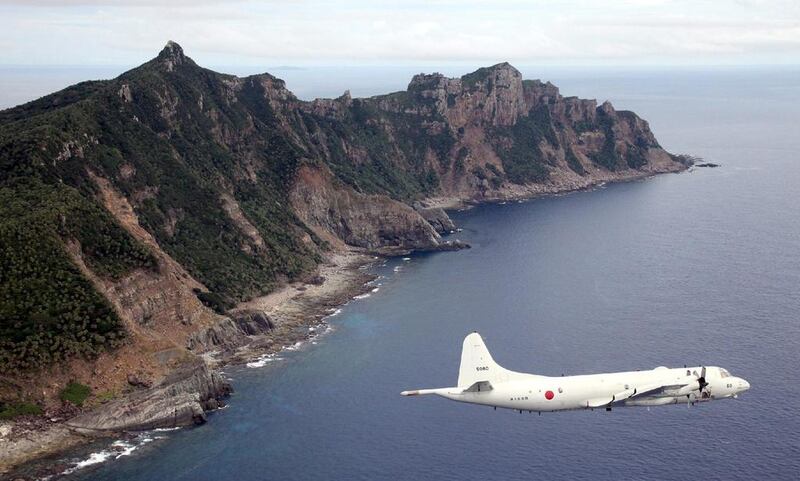One of the key focuses of the second Obama administration’s foreign policy has been the “pivot to Asia”, a programme of engaging more proactively not with the continent as a whole, but more specifically with the Asia-Pacific region. As the then US secretary of state, Hillary Clinton, wrote in an essay that was widely considered to provide an outline of the focus in 2011, the area “boasts almost half the world’s population ... US commitment there is essential.”
America, she declared, needed to make “investments as a Pacific power” similar to those it had made to Europe and global infrastructures in the aftermath of the Second World War. Despite the fact that Barack Obama’s tour of the region in November garnered good headlines, with the US president on confident form, there has been persistent criticism of the pivot.
Specifically, it has been alleged that the policy is hollow and inconsistent with American values. Furthermore, it is suggested Mr Obama has not paid enough attention to human rights and to liberal opposition figures often much vaunted by Washington lawmakers, who are often unaware of the dissonance between the messages such figures convey to international audiences and those they disseminate at home.
This line of attack was presented most starkly in recent analysis by Joshua Kurlantzick, published by the Council on Foreign Relations a highly respected US think tank. The policy has been wrong-headed, it stated, because “increased ties with mainland Southeast Asia have facilitated political repression in the region by empowering brutal militaries, condoning authoritarian regimes, and alienating young Southeast Asian democrats ... In the long run, young Southeast Asians – the region’s future leaders – will become increasingly anti-American and an authoritarian and unstable mainland Southeast Asia will prove a poor partner on economic and strategic issues for the United States.”
To use the author’s adjectives about the policy: it would be hard to find a commentary on the pivot to Asia that is more “badly misguided” and “wrong” in several “important” ways.
To start with, while many in the region have eagerly embraced US culture, anti-Americanism among Asia’s huge Muslim population has been driven far more by what comes across as Washington’s habit of deciding to invade and devastate Muslim countries in the Middle East whenever it wants to, as well as by US reflexive support for Israel. Non-Muslims are no keener on the way congressional figures from “the exceptional nation” don’t hesitate to lecture Asian leaders on how best to run their countries, even when such critics may be suspected of not being able to locate these states on the map.
Perhaps because Mr Obama is unusual among American politicians in having far more lived experience of the rest of the world – with a Kenyan father and growing up partly in Indonesia – he has dialled back on this tendency to wag the finger. This has been an enormously positive aspect of the pivot. He has dealt with the realities on the ground. For example, in Myanmar, where reform of any kind has been a huge achievement. And in Thailand where the current prime minister may have come to power via a coup, but who has received the blessing of the Privy Council, which is crucial in a country that views the monarch as close to being a living god. The Thai prime minister replaced a government that was characterised, as my colleague Bunn Nagara put it, by a “growing illegitimacy amid scandals [that] led to rising tension as Bangkok streets welled with anti-government protests.”
There were some harsh words when the takeover took place, but Obama critics complain that US policies towards Thailand are the same as before – and that is exactly as it should be.
Openly attacking governments for not living up to some Western ideal – too often the actions of successive US administrations – cannot only be counterproductive (which country wants to be seen to bend to American orders?) but also causes loss of face.
Obama’s pivot, on the other hand, appears tacitly to recognise that there might be different ways of producing reasonable governance and of sourcing legitimacy; and that is an insight that will be appreciated.
The countries of South, Southeast and East Asia are old in terms of civilisation, but for the most part young in terms of their adoption of their current systems of government. It is for them to decide how these systems will evolve. And it is for them to decide how they balance deep wells of attachment to religion, race and nationalism with the judgement of the ballot box and majoritarianism versus the protection of minorities.
Mr Obama’s lack of noisy berating in his Pivot to Asia policy deserves praise, not condemnation. History will judge him clear-sighted over it, and it is, alas, something we may well miss under his successors if they have a more parochial and patronising worldview.
Sholto Byrnes is a senior fellow at the Institute of Strategic and International Studies, Malaysia
Click here for The Review's cover story on China's rise and growing tensions in Asia by Joshua Kurlantzick





